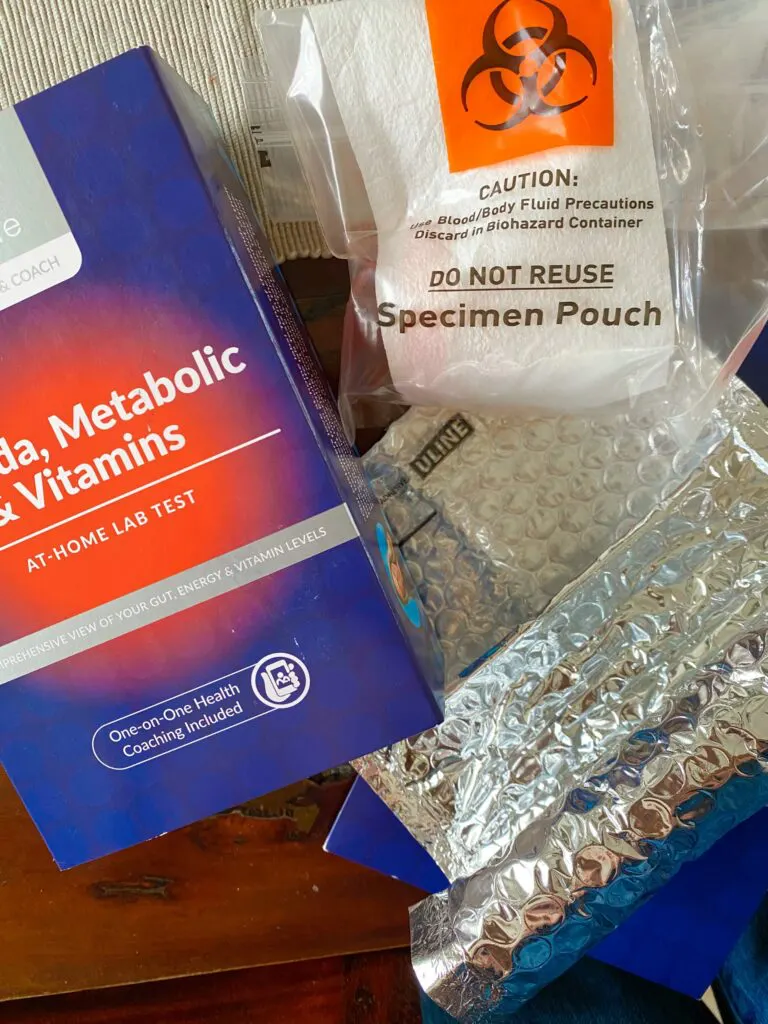Sharing some tips on boosting fertility and supporting your stress levels and hormones.
Hi friends! I hope that you’re enjoying the day so far! I have a conference call this am and two coaching calls this afternoon. I’m excited to get in a lunchtime yoga class in between the screen today.
For today’s post, I wanted to chat a little bit about fertility. While this phase of life seems so far in the past for us (wahhhh), I know many of my friends out there are considering building a family or working towards it. I also wanted to add a note here that if fertility is a triggering topic for you, please skip this post and I’ll see ya back here tomorrow with a new podcast episode! I’m holding you in my heart and sending you love.
Living a healthy lifestyle is crucial not only for your overall well-being but also for your fertility. In fact, many Americans struggle with getting pregnant, with about 12-15% of couples experiencing fertility issues. The good news? Making a few lifestyle and dietary adjustments can significantly increase your chances of getting pregnant. While I understand that there are complicated and difficult situations out there that can all impact fertility, I’m a huge believer in controlling what you can control, which is exactly what this post is about!
Today, I’m sharing a round-up of natural ways to boost fertility that could make all the difference. (As always, this post is not medical advice and talk with your healthcare provider before making any fitness or nutrition changes.)
(P! My baby fever is baaaaaad right now)
13 Natural Ways to Boost Fertility
1. Reduce Stress
Stress is a major factor that can negatively affect fertility in both men and women. When you’re stressed, your body releases cortisol, a hormone that can interfere with the reproductive system, leading to irregular menstrual cycles in women and decreased sperm production in men. Reducing stress, or the impacts of daily stress on your body, is crucial to improving fertility. Techniques such as yoga, meditation, deep breathing exercises, and even simple daily walks can help manage stress levels. Consider incorporating these practices into your daily routine to create a more balanced and calm environment for conception.
2. Maintain a Healthy Weight
Maintaining a healthy weight is one of the most important factors for boosting fertility. Both underweight and overweight individuals can face fertility challenges. For women, being overweight can lead to hormonal imbalances and conditions like polycystic ovary syndrome (PCOS), which can negatively affect ovulation. On the other hand, being underweight can lead to irregular menstrual cycles and difficulties in conceiving. Strive for a balanced diet rich in whole foods, and engage in regular physical activity to maintain a healthy weight, which will optimize your fertility.
3. Increase Physical Activity
Regular physical activity helps maintain a healthy weight, reduces stress, and improves overall health, all of which are beneficial for fertility. However, it’s important to strike a balance—while moderate exercise can boost fertility, excessive exercise may have the opposite effect. For women, over-exercising can lead to irregular periods or even amenorrhea (absence of menstruation), while in men, it can reduce sperm count. Aim for moderate, consistent exercise such as brisk walking, swimming, or cycling for about 30 minutes most days of the week.
4. Limit Alcohol Consumption
Alcohol consumption can have a negative impact on fertility in both men and women. For women, drinking alcohol can disrupt hormonal balance, affecting ovulation and increasing the risk of miscarriage. For men, alcohol can reduce sperm count and quality. Limiting alcohol intake—or better yet, avoiding it altogether—can significantly boost your chances of getting pregnant. If you’re trying to conceive, consider replacing alcoholic beverages with non-alcoholic alternatives or herbal teas.
5. Avoid Smoking
Smoking has been shown to have a significant negative impact on fertility. In women, smoking can damage the fallopian tubes, cause cervical changes, and increase the risk of miscarriage and ectopic pregnancy. In men, smoking can reduce sperm count and motility, as well as cause DNA damage to sperm. Quitting smoking is one of the best things you can do to improve your fertility and overall health.
6. Eat a Balanced Diet
A diet rich in fruits, vegetables, whole grains, lean proteins, and healthy fats can provide your body with the nutrients it needs to support fertility. Certain nutrients, such as folic acid, zinc, and omega-3 fatty acids, are particularly important for reproductive health. Consider incorporating foods like leafy greens, nuts, seeds, fatty fish, and avocados into your diet to help boost fertility. Additionally, limit your intake of processed foods, refined sugars, and trans fats, which can negatively affect fertility.
7. Consider Herbal Supplements
Certain herbal supplements have been traditionally used to support fertility. For example, maca root is known for its ability to balance hormones and improve fertility in both men and women. Vitex, also known as chasteberry, can help regulate menstrual cycles and support ovulation. However, it’s important to consult with a healthcare professional before starting any new supplements, as they can interact with other medications and may not be suitable for everyone.
8. Monitor Ovulation
Understanding your ovulation cycle is key to timing intercourse for conception. There are various methods to monitor ovulation, including tracking your basal body temperature, observing changes in cervical mucus, and using ovulation predictor kits. By identifying your most fertile days, you can increase your chances of getting pregnant. Additionally, keeping a fertility journal can help you become more in tune with your cycle and recognize any irregularities that may need medical attention.
Check out this post about Fertility Awareness Method, which is what I use.
9. Get Adequate Sleep
Sleep plays a crucial role in regulating hormones that are essential for fertility, such as melatonin and cortisol. Lack of sleep can disrupt these hormones, leading to fertility issues. Aim for 7-9 hours of quality sleep each night to support your reproductive health. Creating a bedtime routine, limiting screen time before bed, and maintaining a consistent sleep schedule can all contribute to better sleep and, consequently, improved fertility.
10. Limit Exposure to Environmental Toxins
Exposure to environmental toxins, such as pesticides, heavy metals, and endocrine disruptors, can negatively impact fertility. These toxins can interfere with hormone production and reproductive function in both men and women. To reduce your exposure, opt for organic produce, use natural cleaning products, and avoid plastic containers that contain BPA. Making these small changes can help create a healthier environment for conception.
11. Stay Hydrated
Staying hydrated is essential for overall health, including fertility. Proper hydration supports the production of cervical mucus, which is necessary for sperm to reach the egg. It also helps maintain the balance of hormones in the body. Aim to drink at least 8 glasses of water a day, and consider adding a slice of lemon or cucumber for added flavor and nutrients.
12. Consider Functional Testing
In addition to making lifestyle changes, it’s crucial to consider functional testing to get a deeper understanding of your body’s unique needs. Functional tests such as blood sugar levels, A1C, stress hormone patterns, mineral balance, and gut health can provide valuable insights into factors that may be impacting your fertility.
For instance, imbalances in blood sugar can disrupt hormonal functions, while high stress levels can lead to irregular cycles and ovulation issues. Mineral deficiencies, like low magnesium or zinc, can negatively affect reproductive health, and poor gut health can influence hormone balance and nutrient absorption. By understanding these underlying factors, you can take targeted steps to support your fertility naturally and effectively. (If you’re interested in at-home functional lab testing, email me gina@fitnessista.com. ALL tests are on sale this week and I’d love to work together to discover imbalances, toxicities, and deficiencies.)
13. Seek Professional Guidance
If you’ve been trying to conceive for a while without success, it may be time to seek professional guidance. A healthcare professional or fertility specialist can help identify any underlying issues that may be affecting your fertility and recommend appropriate treatments.
Recap on How to Boost Fertility in Your 30s
– Prioritize self-care and stress management.
– Consider acupuncture to support fertility.
– Focus on nutrient-dense foods and balanced meals.
– Maintain a healthy weight through regular exercise and a balanced diet.
– Limit exposure to harmful chemicals and environmental toxins.
Making these changes can have a profound impact on your fertility and overall health. Remember, every small step counts. And if you’re looking for more natural health tips, check out my post on natural remedies for PMS and my top 10 prenatal fitness tips.
xoxo
Gina
Trending Products

Arm Blaster Forearm Exercise Gear – ZHMNEG New Hydraulic Energy Tornado Spin Button 10 Gears Adjustable 22-440lbs,Thickened Carbon Metal, Deal with Put on-Resistant Non-Slip PU Smooth Rubber

LALAHIGH Transportable Residence Fitness center System for Males and Ladies:Push Up Board, Pilates Bar & 20 Health Equipment with Resistance Bands and Ab Curler Wheel-Skilled Energy Coaching Train

Actual Necessities 5 Pack: Males’s Mesh Athletic Basketball Shorts Fast Dry Activewear with Pockets

ABS Stimulator, Ab Machine, Belly Firming Belt Muscle Toner Health Coaching Gear Ab Coach Tools for Dwelling z-4

Actizio Sweat Activated Humorous & Motivational Exercise You Can Go Residence Now Males’s T-Shirts & Tank Tops

Adjustable Weight Bench for Full Physique Exercise, Foldable Exercise Bench for House Health club, Multi-Function Weight Bench with 3-Sec Folding& Quick Adjustment for Bench Press Sit up Incline Flat Decline

LALAHIGH Moveable Residence Health club System: Massive Compact Push Up Board, 20 in 1 Pushup Bar at Residence Health club Exercise Tools for Ground Full Physique for Males and Girls, Present for Boyfriend

Train Cube – Health Exercise Gear for Residence Gymnasium. PE Gear and Equipment, Private Coach Work Out Sport Provides for Adults











